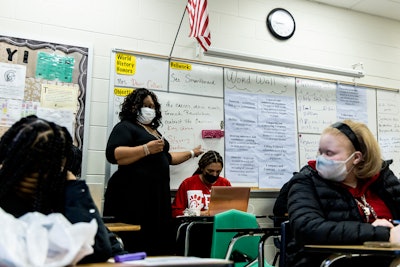The College Board will again revise its AP African American studies course, which has drawn criticism and controversy, The Washington Post reported.
The testing company did not give specifics on potential changes but said that revisions would make it so that, “regardless of how many students take this course, each one of those students should have access to the full breadth and beauty of this discipline.”
The course has been undergoing revisions and soft-launches in certain U.S. high schools, with a general nationwide launch expected for Fall 2024. But the current rollout of the course framework has been littered with backlash, especially as it became embroiled in the politics of race and education, drawing the ire of Florida officials claiming it to be indoctrination.
“In embarking on this effort, access was our driving principle — both access to a discipline that has not been widely available to high school students, and access for as many of those students as possible,” the College Board said. “Regrettably, along the way those dual access goals have come into conflict.”
The course covers the African diaspora, slavery, Jim Crow, and the civil rights movement, but has received criticism from both the political right and left. College Board’s February public release for the course plan had omitted or scaled back certain concepts that had angered conservative commentators, such as concepts of “systemic” and “intersectionality.” To increase time for student research, reparations and Black Lives Matter were also made optional research topics.
“If the course continues to lack rigor and completeness some faculty will advise our institutions to reject advanced placement credit for the course,” one group of African American studies faculty wrote in a Medium post.
College Board has since denied making the changes for to appease politicians.
“We are committed to providing an unflinching encounter with the facts and evidence of African American history and culture,” a Monday College Board statement read. “To achieve that commitment, we must listen to the diversity of voices within the field.
“The development committee and experts within AP remain engaged in building a course and exam that best reflect this dynamic discipline. Those scholars and experts have decided they will make changes to the latest course framework during this pilot phase. They will determine the details of those changes over the next few months.”















